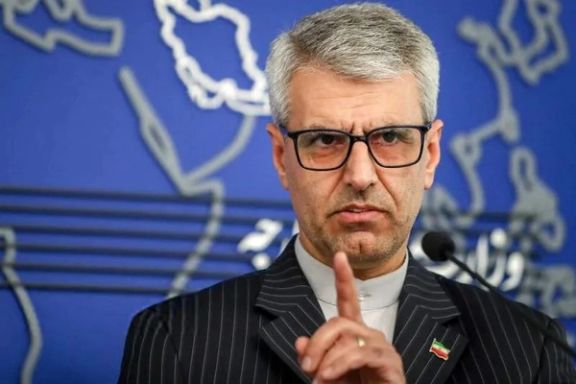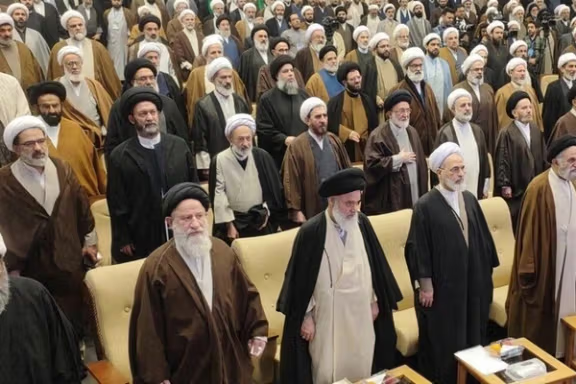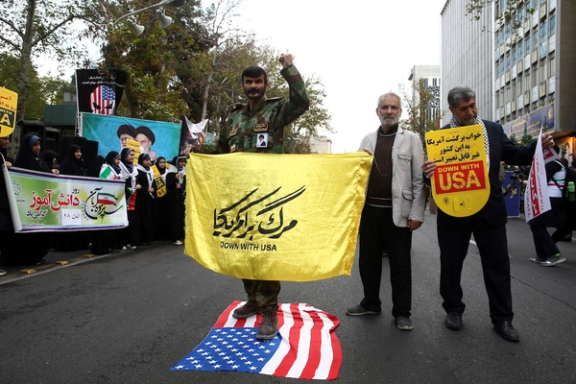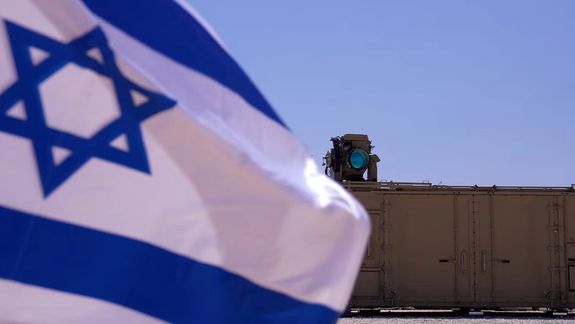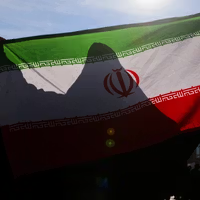"The so-called snapback mechanism has no legal or political basis," Baghaei said during his weekly press briefing. "In light of recent developments, resorting to such a mechanism is more unfounded than ever and lacks any legal, political, or ethical justification."
Baghaei stressed that Iran still considers itself a signatory of the Joint Comprehensive Plan of Action (JCPOA), despite reducing its commitments in response to what he described as "blatant violations" by the United States and European parties. The US pulled out of the 2015 agreement in 2018 under President Donald Trump's first administration.
“Our reduction of commitments was a response one year after the illegal withdrawal of the US from the JCPOA,” he said. “The European parties themselves also violated their obligations under the deal and failed to act accordingly. Therefore, they have no standing to invoke the mechanism.” He did not elaborate on how the EU violated the deal.
He said the move to activate the snapback clause, originally embedded in UN Security Council Resolution 2231, was "just an instrument of political pressure" and "will be met with a proportionate and appropriate response by Iran."
He dismissed the European threats as lacking "any legal justification" and said, "They must be held accountable for the consequences of their own failures. If they had adhered to their commitments honestly, today’s situation would have been different.”
Earlier in June, France’s Foreign Minister Jean-Noël Barrot said, “France, together with its European partners, can, with a simple letter, reimpose a global embargo on weapons, nuclear equipment, and banking and insurance sectors in Iran, which were lifted 10 years ago.”
Under UN Security Council Resolution 2231, any current JCPOA party—France, Germany, the UK, Russia, or China—can file a non-compliance complaint. If no resolution to maintain sanctions relief is adopted within 30 days, all previous UN sanctions automatically snap back, including cargo inspections, arms embargoes, and missile-related restrictions.
Iran accuses Germany of double standards
The spokesman also criticized Germany and the International Atomic Energy Agency (IAEA), alleging selective enforcement of nuclear non-proliferation obligations and supporting Israeli military actions.
“Germany’s hosting of US nuclear weapons is in clear violation of its obligations under the Non-Proliferation Treaty (NPT),” Baghaei stated. “We know that a significant number of US nuclear warheads are stationed in Germany, which itself is enough to show a breach of international commitments.”
He added, “Despite this, we witness Germany taking an incorrect stance and supporting violations of international law by backing Israeli military actions. This support carries international responsibility.”
Just days after Iran expelled the UN watchdog, Baghaei also accused the IAEA of "instrumental and selective behavior" in addressing nuclear issues, saying the agency has become part of a broader political toolset, in particular, giving information to the US and Israel which Iran says helped strikes launched against Iran's nuclear facilities last month.
Iran also criticized the IAEA for not condoning the strikes on the country's three main nuclear facilities. “The peaceful nuclear facilities of Iran are being targeted militarily, while the agency remains silent on clear violations by other countries,” he said.
On reports of Russia allegedly pushing Iran to agree to "zero enrichment" levels, Baghaei called the claims “fabricated” and aimed at “damaging Iran’s ties with its partners.” He said that “Russia knows well that Iran makes independent decisions regarding its nuclear policy, and they have always respected that.”
No date for talks, no proposals from allies
Regarding the resumption of nuclear negotiations, Baghaei said no time or location has been set for future talks but confirmed ongoing consultations with China and Russia.
“We maintain strategic relations with both countries and are in close contact with them,” he said. “While no specific proposals have been presented, both China and Russia have consistently expressed readiness to help resolve the nuclear issue.”
He cited “positive discussions” between Iranian and Russian officials during the recent BRICS summit and added that Foreign Minister Abbas Araghchi had traveled to China to attend the Shanghai Cooperation Organization ministerial meeting for continued consultations.
On reports that China or Norway may act as new intermediaries in nuclear negotiations, Baghaei said such rumors were “just speculation and cannot be confirmed.”
Diplomacy still an option, but not at any cost
When asked about Iran’s conditions for returning to talks, Baghaei said, “We are serious about diplomacy and have entered negotiations with good faith. However, before the sixth round of talks, the Zionist regime, in coordination with the United States, carried out a military aggression against Iran.”
He emphasized that Iran would not re-enter negotiations “until there is confidence in the effectiveness of diplomacy.”
“Diplomacy is a tool and an opportunity,” he said. “We are not allowed to deprive ourselves of this tool to explain Iran’s position and defend our national interests. Just as the armed forces are fulfilling their duty to defend the country, the diplomatic apparatus must do the same through diplomacy.”
Damage to Fordow still under review
Baghaei said that assessments of damage to Iran’s Fordow nuclear facility, targeted by US bombs just before the ceasefire with Israel last month, are still ongoing due to the "scale and type of the strikes."
He also responded to a recent joint statement by the UK, France, and Germany condemning Iran's retaliatory strike on the Al-Udeid air base in Qatar.
“It is the height of hypocrisy for the three European countries to justify the aggression of the Zionist regime and question Iran’s legitimate defensive response,” he said. “These statements are baseless and not worth responding to.”

